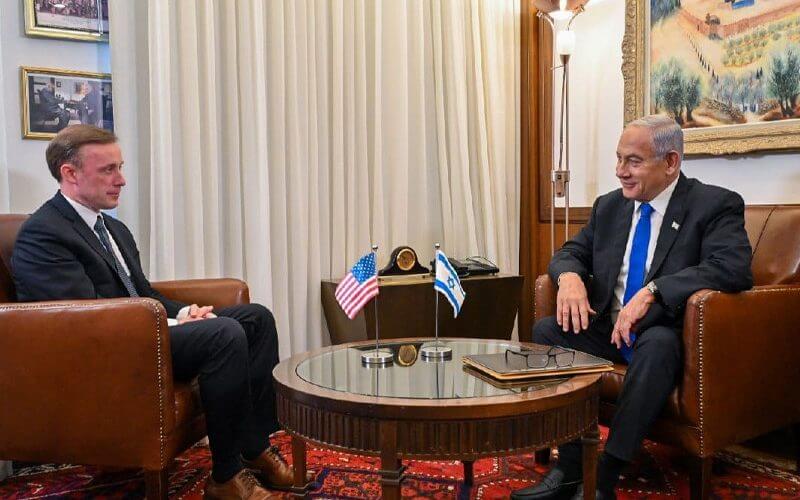United States National Security Adviser Jake Sullivan has reportedly accused Israeli officials of leaking sensitive information to the media about ongoing talks between the U.S. and Iran. The accusations came to light in a recent report by Axios, which cited three U.S. and Israeli officials familiar with the matter.
According to the report, Sullivan expressed his frustration to his Israeli counterpart, National Security Adviser Tzachi Hanegbi, regarding recent comments made by Israeli Prime Minister Benjamin Netanyahu about a potential deal between the U.S. and Iran.
Sullivan also voiced his concern about information leaked to the press regarding the ongoing negotiations.
PM Netanyahu had previously stated that Israel opposes any interim agreement between the U.S. and Iran concerning Iran's nuclear program. The Israeli Prime Minister explained that curbing Iran's nuclear ambitions remains Israel's top priority, reiterating his opposition to the original 2015 nuclear deal, which the U.S. withdrew from in 2018, and expressed his objection to any "mini agreements" as well.
The Israeli Prime Minister's remarks came in response to a report in The New York Times, which claimed that the U.S. and Iran sought an informal understanding.
The reported understanding between Washington and Tehran would involve commitments, including limiting uranium enrichment, cooperating more closely with U.N. nuclear inspectors, halting attacks by proxy terror groups in the region, refraining from providing ballistic missiles to Russia, and releasing American-Iranian detainees.
In return, the U.S. would pledge not to impose further economic sanctions, release frozen Iranian assets held abroad, and avoid pursuing punitive resolutions against Iran at the United Nations or the International Atomic Energy Agency (IAEA).
Netanyahu's comments echoed concerns expressed by a senior Israeli official who voiced apprehension about the U.S. potentially reaching understandings with Iran without formalizing them into a legally binding agreement.
According to reports, the concern stemmed from the possibility of bypassing congressional approval for such an agreement.
Officials from the Biden administration dismissed these concerns, emphasizing that President Biden values collaboration with Congress. U.S. Secretary of State Antony Blinken reiterated that no agreement is currently on the table, but the U.S. remains open to exploring diplomatic avenues.
Blinken also clarified that recent talks with Iran have primarily focused on securing the release of American prisoners rather than addressing nuclear enrichment directly.
As part of these discussions, the U.S. has shown a willingness to allow Iran access to certain funds held abroad, provided they are used for humanitarian purposes or to settle outstanding debts on a case-by-case basis.
While the Biden administration has pursued efforts to revive a broader nuclear deal involving European powers, China, and Russia, Blinken highlighted that Tehran has not taken the necessary steps to comply with the agreement.
U.S. National Security Adviser Jake Sullivan's accusations of Israeli officials leaking sensitive information about the U.S.-Iran talks have raised concerns.
Israeli Prime Minister Benjamin Netanyahu's opposition to interim agreements and emphasis on curbing Iran's nuclear program align with his country's priorities.
The Biden administration has denied the existence of a current deal but remains committed to diplomatic channels. Recent discussions have focused primarily on securing the release of American detainees held by Iran.
Related Story: Secrecy & Back Channels – Latest on the Iran Nuclear Deal
Related Story: Biden Administration Trying Not to Acknowledge Iran Nuclear Agreement to Avoid Congress









